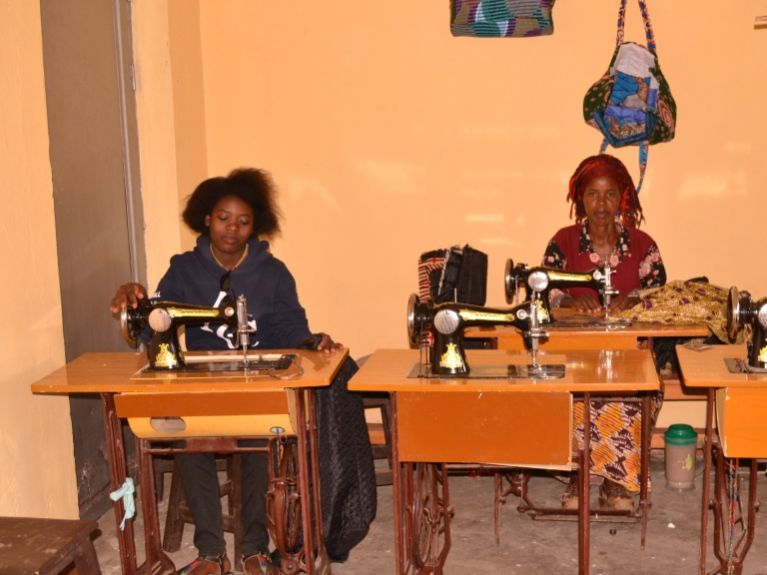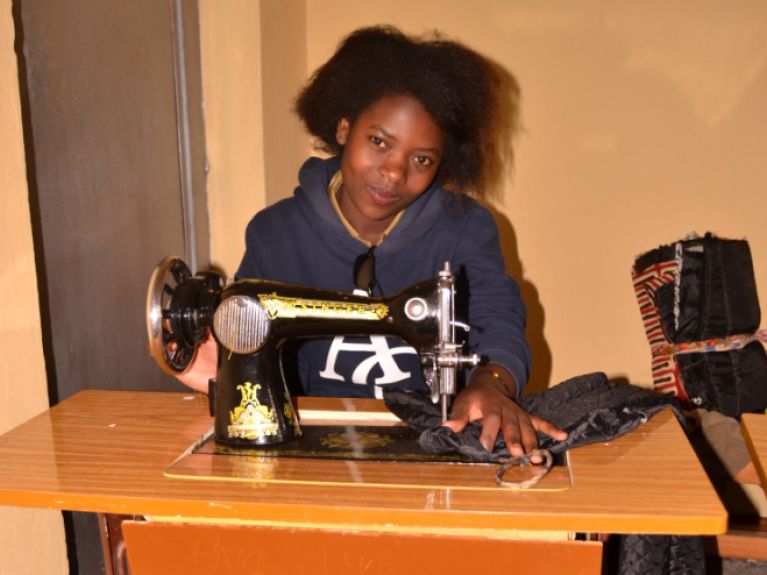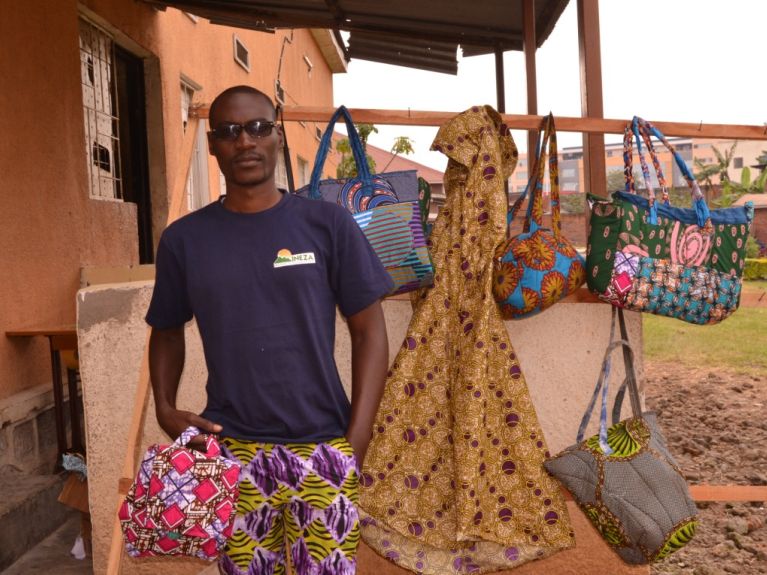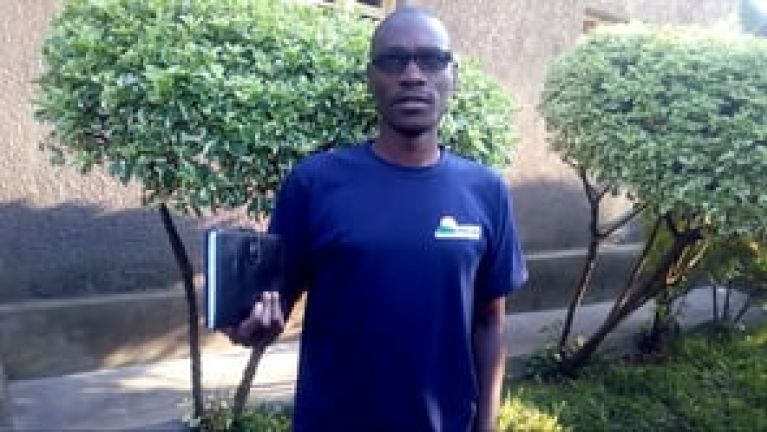Ineza Women Initiative, Rwanda
The Ineza Women Initiative expands opportunities for girls and women through education, entrepreneurship and vocational training.
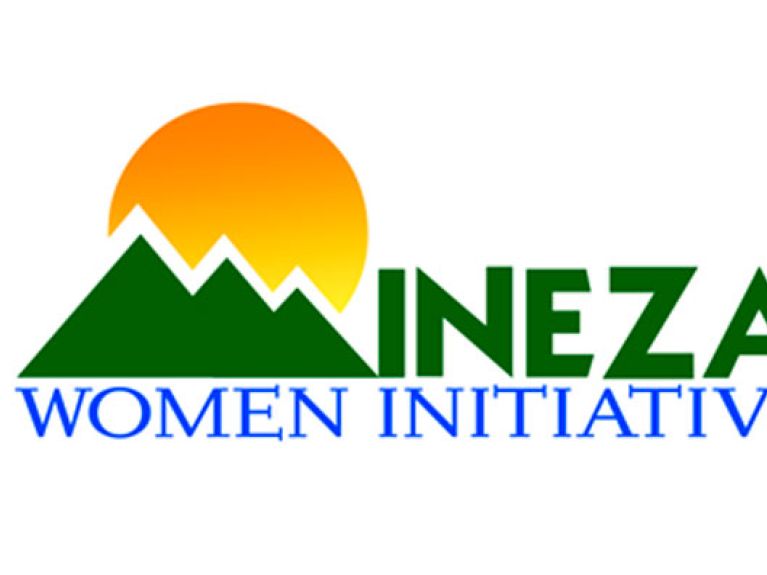
Dieses YouTube-Video kann in einem neuen Tab abgespielt werden
YouTube öffnenInhalte Dritter
Wir verwenden YouTube, um Inhalte einzubetten, die möglicherweise Daten über deine Aktivitäten erfassen. Bitte überprüfe die Details und akzeptiere den Dienst, um diesen Inhalt anzuzeigen.
Einverständniserklärung öffnenProject name: INEZA WOMEN INITIATIVE
Project location: Northern Rwanda
Website: http://ineza-women-initiative.site123.me/
Facebook: https://web.facebook.com/iwirwanda/
Project description:
The Ineza Women Initiative expands opportunities for females (girls and women) through education, entrepreneurship and vocational training. At IWI, we developed a model by which our beneficiaries are empowered throughout the following 4Ws named programs: Women in Entrepreneurship, Women in Leadership, Women in Conservation and Women and Health. In entrepreneurship, we provide females with the knowledge and skills to earn and save money from their own businesses and lift themselves and their families out of poverty. Our skills-building training offer women the support they need to advance in leadership and decision making situations. The wise use of the earth’s natural resources is our concern towards our beneficiaries because they depend on them. To reach the women’s sustainable development, we thought to inform and teach them how to conserve these limited natural resources around them. The last program is about women and health. Everyone needs a healthy life. At IWI we make sure our beneficiaries are taught about a healthy life. We tackle on different topics such as: family planning, sexually transmissible diseases, hygiene, ownership of health insurance, etc.
Goal and purpose of the project:
The goal and core purpose of the project is to provide tailoring and shop management vocational training for females facing hardship and minimal opportunities in Musanze, Rwanda. This training will take place in a vocational training center and sales shop that will be initiated and operated by the Ineza Women Initiative, providing a full circle experience from tailoring and sewing skills to business management.
As a whole the project has many interacting aspects that address a number of challenges in the region. These include:
- Providing full circle training from clothing design and tailoring to shop/business, with potential to expand into other skill areas
- Supplying jobs to those facing limited opportunities
- Offering community members a way to contribute to local efforts
- Offering subsidized products to orphans and disability schools
- Growing support and funds for local initiatives, orphans and disability schools
The Vocational School of Fashion Design will offer hands on education to unemployed females. Most of the time these later emerging from schools and homes often find it difficult to enter the workforce due to a lack of hard skills, creating a drain on families and the local community. Currently, graduates are in search of vocational training opportunities as additional skills to what they learnt before but couldn’t provide them with practical skills. However, the project will offer females a safe, supportive environment where they can gain the skills needed to enter the local economy.
Products produced in the center will be sold through two avenues. The first will be through a market stall. Products will be sold at standard market prices. Females in the vocational training program will be able to learn about business management through the shop, and it will allow the local community to contribute to local efforts by purchasing items they require. As the vocational training center grows, additional market stalls for sales may be considered and be expanded throughout the country.
The second avenue for sales will be offering subsidized products, such as schools for children with disabilities. This will allow them provide necessary items for the children, while re-allocating saved funds to areas such as food, medicine, infrastructure and education.
The focus of the program is to empower trainees to become agents of their own development by producing tailors and leaders with not only the skills needed to work and have a secure future in the local economy, but to foster a belief that we can all help others. After 2 years the program will have taught and trained 400 underprivileged females so that they can support themselves, empower them with confidence in themselves, and show them that we all benefit by working together. It is expected that they will in turn transfer the skills they got to the community and the country in general.
Motivation of the applicant / applicant team:
My idea of starting this initiative takes roots since I was at my youngest age. I used to see how my mother and women around our home used to struggle with uncountable unpaid care works like farming, cooking, looking for fire woods, ect. Something came into my mind and I asked myself if the kind of stuffs only regarded women. As the years gone, the concept of gender equality was understood and it is where I got that the same routine to keep women in kitchen burdened with unpaid works has been preventing them many opportunities to get income to fix their needs instead of begging from their husbands. For now, I decided to startup this initiative where I had in mind to create a platform of women where they will be informed about their rights in society by getting proper skills that would lead them to a sustainable development. We have now trained women, who are a channel of our message that can change the society’s mindset that women should always deal with kitchen works and let men be free. As women are pillars of families, we believe that an empowered woman can strengthen the society in one way or the other.
Use of prize money:
The Money will be used in the start up and operations of the vocational training center through hiring the center building, shops and market stall rental, buying equipments (Sewing machines, Button Hole Machine, Zig-Zag machine, Singer Sweater Knitting Machine, Serger-Babylock, Dry Iron, Tables, Chairs, tissues, needles, threads, payment of trainers and house guard. This project is expected to be fully sustainable within two years of its initial implementation. We believe that the centre will be generating substantial amounts of product suitable for sale and gain regular clientele. Funds from sold items will support the wages, growth, training, and maintenance of the vocational training center, meaning no further donor/external inputs will be required.
